Of the many different types of ubiquitous weeds in my lawn and garden beds, during late summer and fall one of them is "king of the weeds" by far: smartweed.
Although this weed grows and blooms all summer long, it seems like this time of year is when I really notice it. Maybe it's just this year that it's a problem though.
There are two very similar species that go by the common name "smartweed", and I'm not entirely sure which one I have in my yard -- possibly both. Polygonum persicaria is one (also called "ladysthumb"), and Polygonum pensylvanicum is the other. I'll refer to them both here as "smartweed", even though I may have primarily ladysthumb in my yard. (That's the great thing about common plant names: there's often more than one for a plant.)
As far as weeds go, this one is fairly attractive, with nice pink flowers:
Normally this plant produces its flowers on the ends of long, thin stems, and the plant sort of sprawls across other plants:
Mowing usually controls the plant in the lawn for most of the year, but plants are persistent, and they adapt:
The smartweed has produced smaller flowers on very short stems, keeping everything below the level of the mower blades.
Now there is a scattering of pink over a wide area of the lawn:
The mower isn't going to help me any more this year. I've read that an average smartweed plant produces 19,000 seeds, and that they're fairly long-lived: in one study 50% germinated after 4 years, and 3% still germinated after 10 years.
I don't need to do any math to know that I'm going to be seeing these guys in my yard for years and years. I'd like to reduce their numbers a bit and get them out of the lawn, but as far as weeds go, I can live with a few of these in my garden.
I just need to figure out what I should call them: smartweed or ladysthumb?
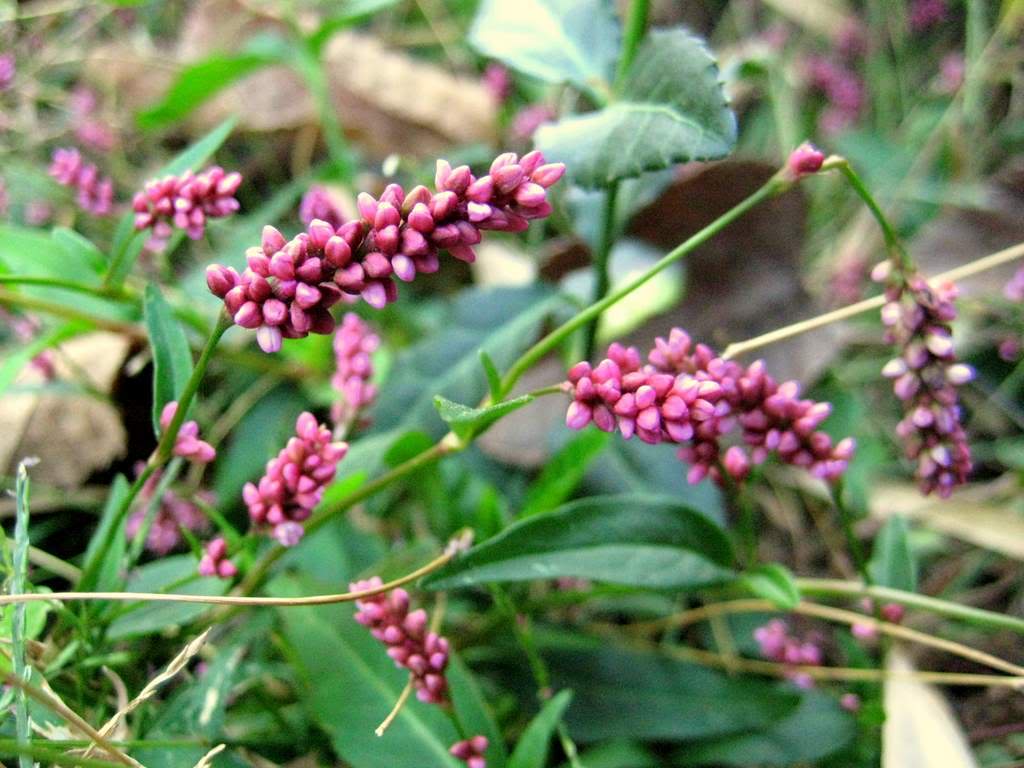
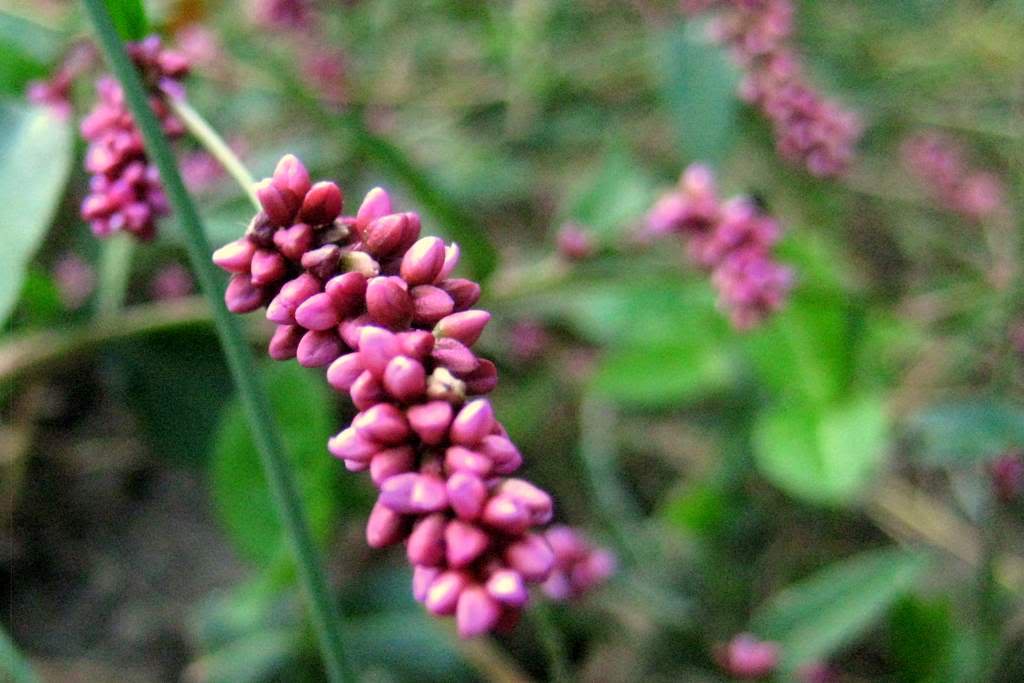
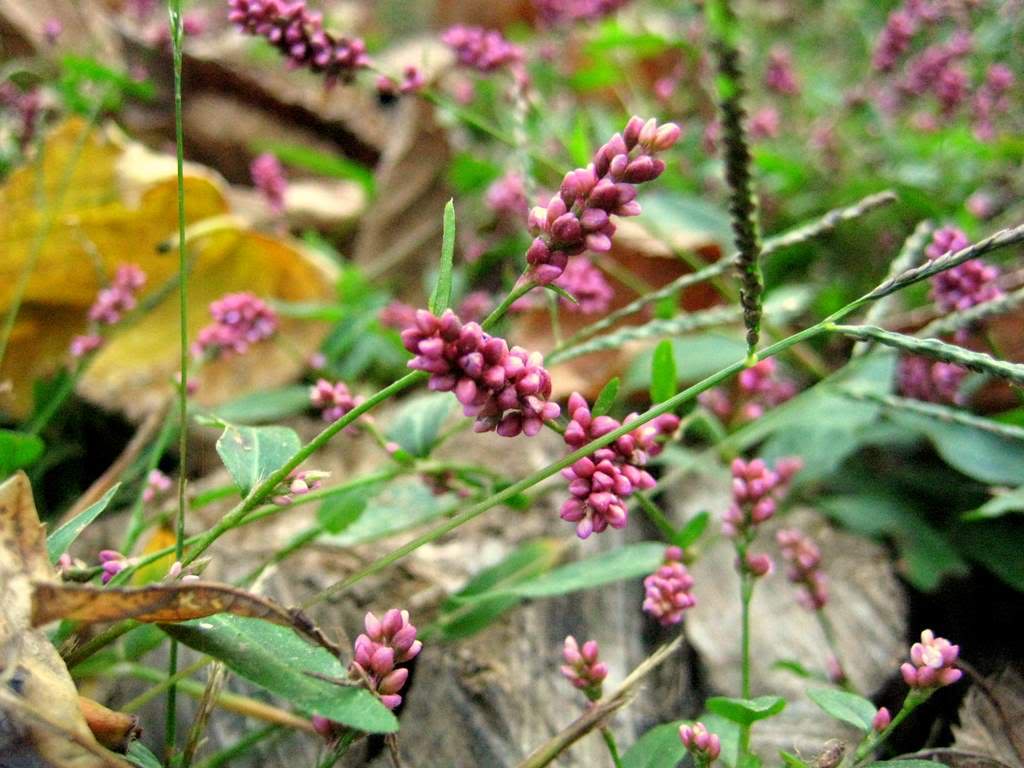
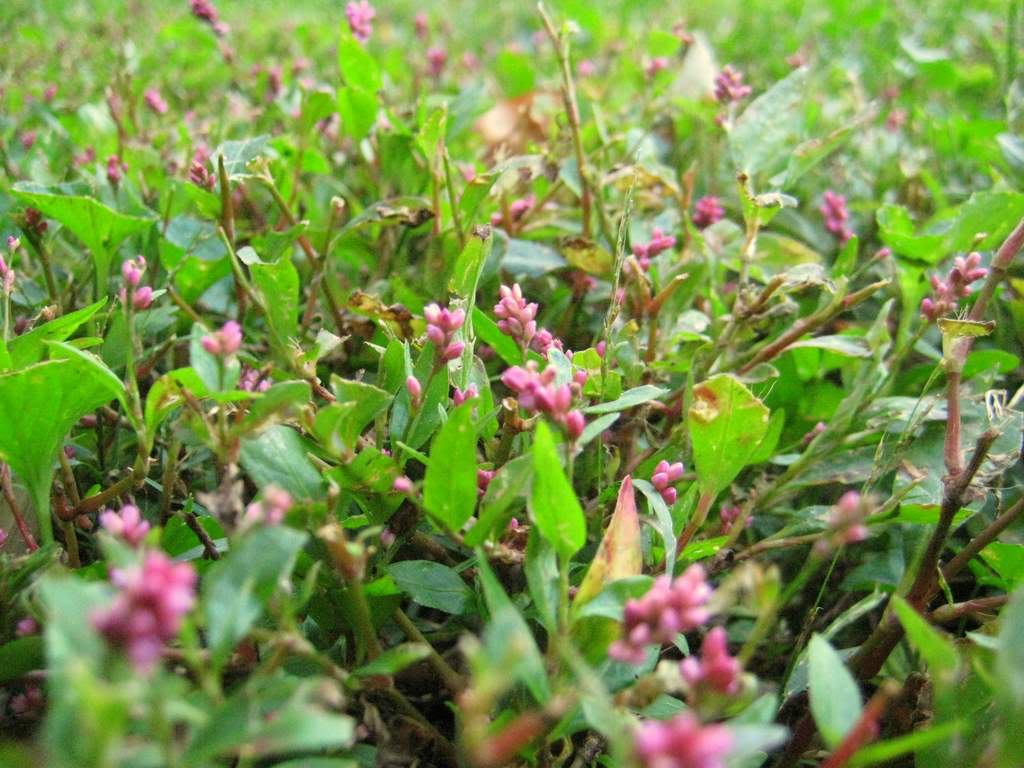

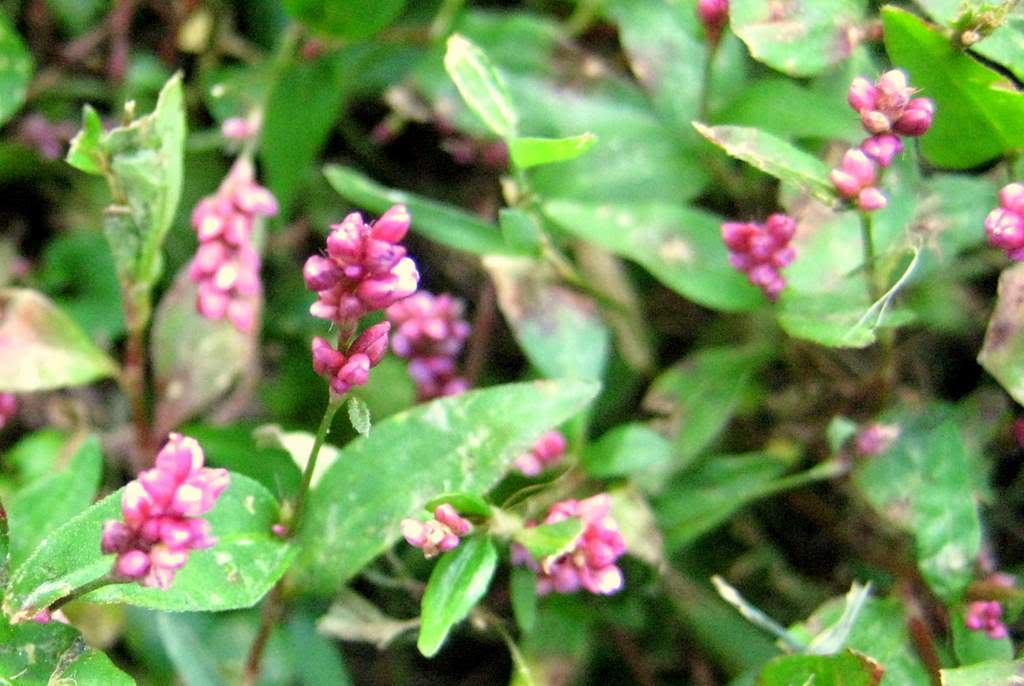
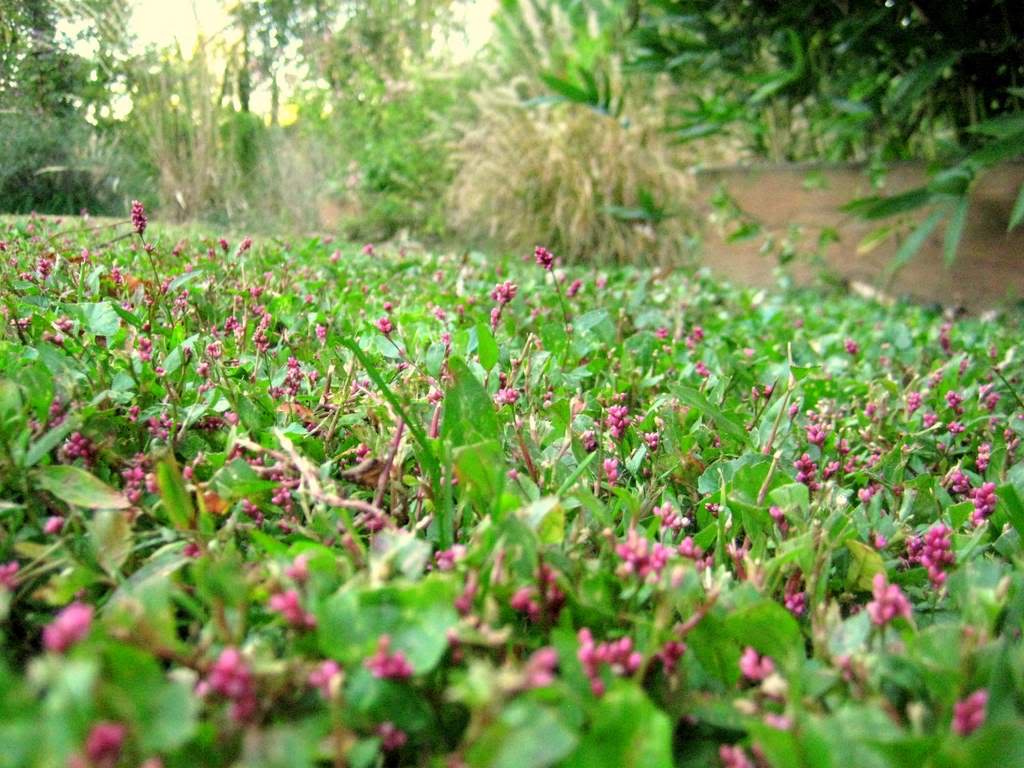
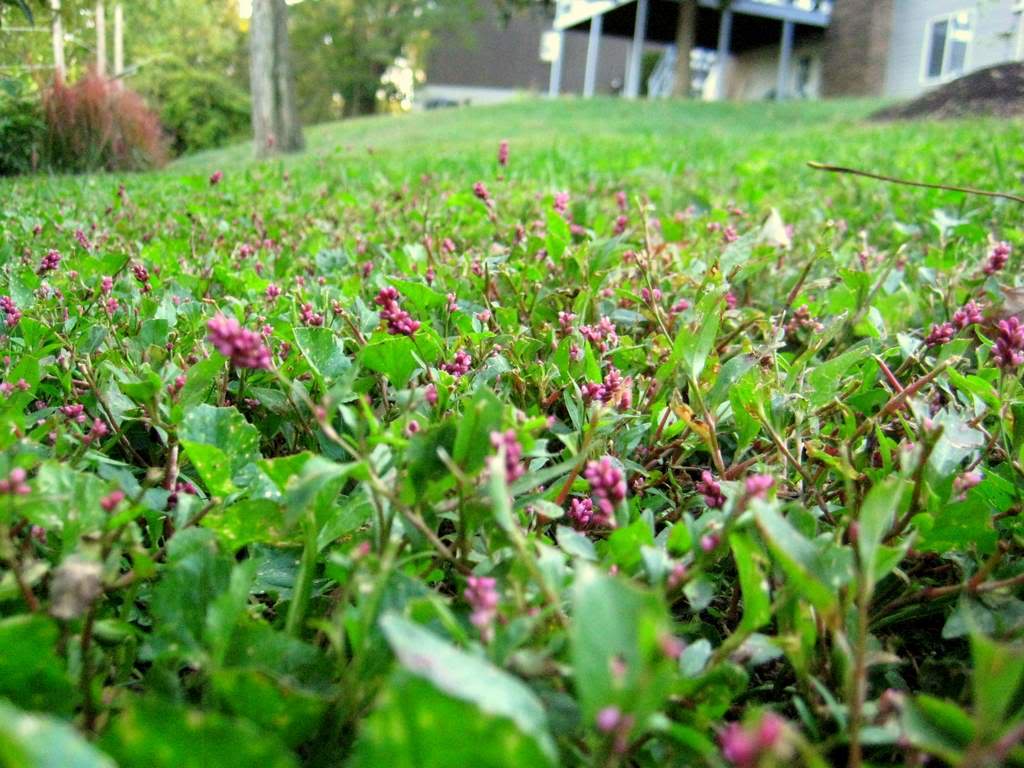

Thank you! I've often wondered what this plant is called.
ReplyDeleteWe too have this growing in our yard, garden, and small pasture. How are you getting rid of it? We try to avoid chemicals but I'm afraid it will spread to neighbors yard and crop field behind us. Thank you
ReplyDelete